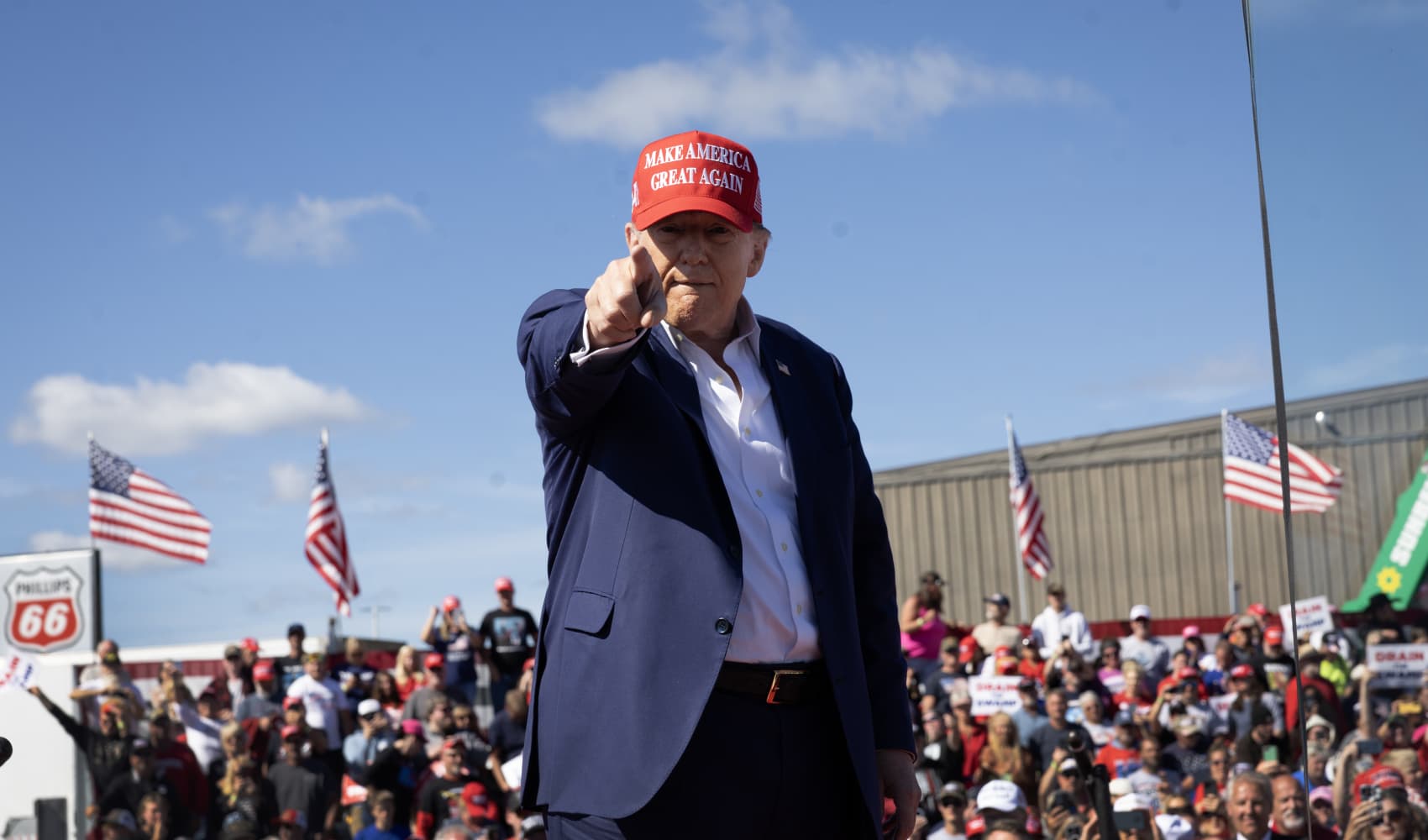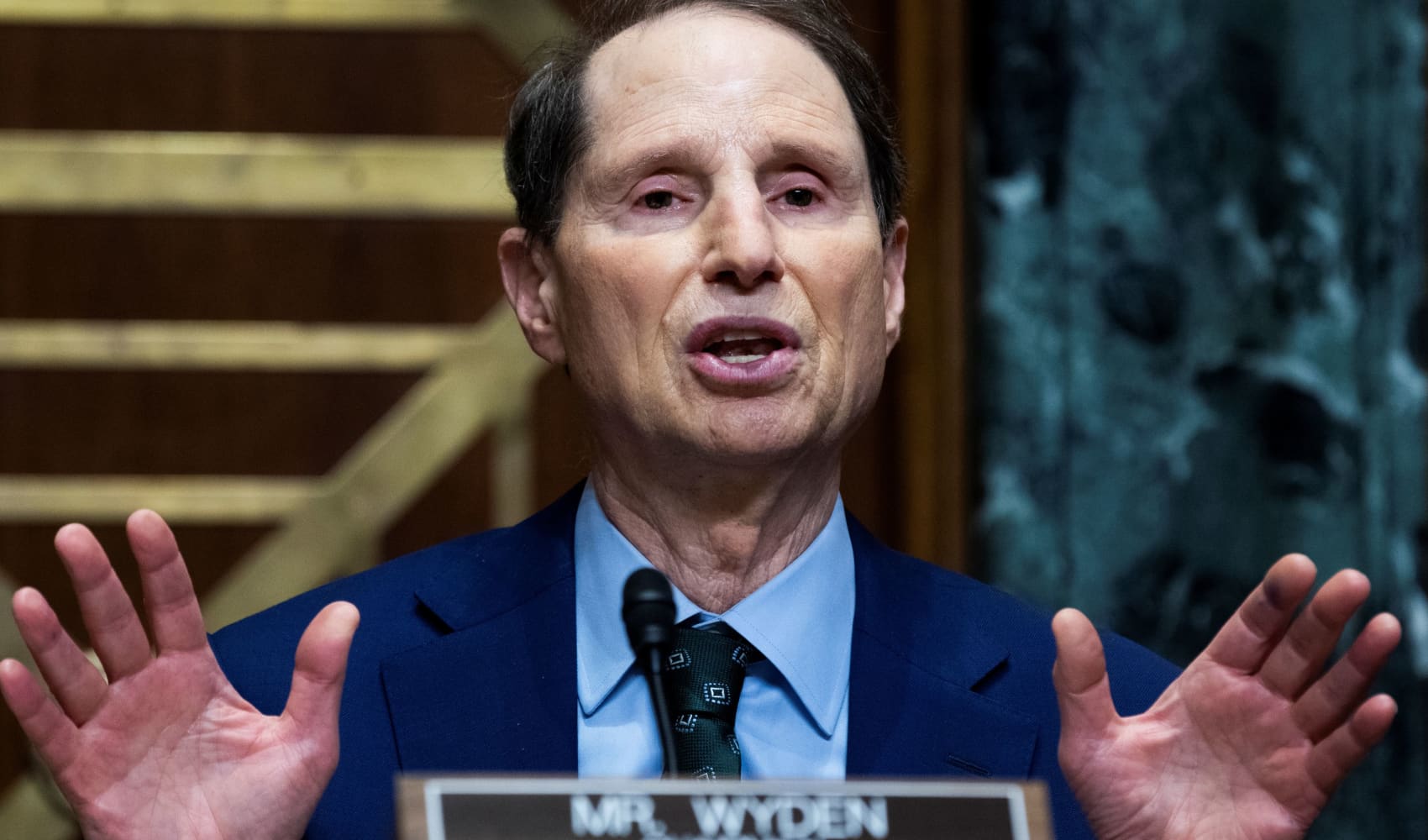
This report is from this week's CNBC's "Inside India" newsletter which brings you timely, insightful news and market commentary on the emerging powerhouse and the big businesses behind its meteoric rise. Like what you see? You can subscribe here.
The big story
Not so long ago, India's Nifty 50 index was outperforming the S&P 500 for this year.
But an 8% rally in U.S. stocks since the big Aug. 5 sell-off has left the Indian benchmark in the dust.
While much of the American outperformance can be credited to markets realizing the U.S. economy remains strong, the lackluster performance of Indian equities has been chiefly due to its failure to positively surprise investors.
Earnings for Nifty 50 companies rose 3% in the first quarter over the past year. Stripping out banks and energy firms shows that the rest eked out earnings-per-share growth of 19% in the most recent quarter, compared to a year ago.
However, the stock market is a forward-looking beast, and the above was expected. In fact, only 21 out of the 50 companies that make up the index surprised investors. The rest simply couldn't keep up.
Money Report
Many analysts fear it won't be long before nearly all of the market fails to outperform expectations. And even when a few companies do, it won't matter much for investors' total returns.
"We believe that potential beats in Autos, Industrials, Healthcare, and IT may not be enough to offset the misses in Financials, Metals, and Energy," said Amish Shah, equity strategist at Bank of America. "Besides, slowing global growth is a risk."
Feeling out of the loop? We'll catch you up on the Chicago news you need to know. Sign up for the weekly Chicago Catch-Up newsletter.
A possible slowdown in global economic growth, potentially leading to a fall in commodity prices, isn't helpful for India. But it's unlikely to derail its growth trajectory.
The South Asian nation has a consumer-led economy where exports aren't yet a dominant feature. However, a fall in oil prices due to a global slowdown could prove beneficial as lower fuel prices contribute to higher discretionary spending for its citizens.
Since the stock market isn't representative of the Indian economy — energy makes up a significant portion of the Nifty 50 while being a relatively small portion of the GDP — any hit to oil and gas firms' earnings leaves investors with wobbling returns. GDP growth, meanwhile, might continue to stay the course.


Investors have also raised the bar for future growth with lofty projections. To meet expectations, Nifty 50 companies' earnings per share would need to grow by 13% compounded annually for three years, according to Citi. This is a tall order, yet tepid from even frothier previous expectations.
"Earnings revision, though still better than long-term trends, have moderated from upward revision trends and now are flattish since July," said Surendra Goyal, head of India research at Citi. "We find upsides limited at current levels — would be buyer on any dips."
Should investors sell out? Is it worth risking future potential profits?
One cadre of investors think they may have solved the conundrum by turning toward a more stable instrument: bonds.
"Indian equities are enjoying strong price momentum and earnings growth, but remain highly correlated to, and arguably dependent on, the continued performance of US equities in a late cycle environment," said Maximilian Macmillan, a senior investment director at U.K. asset manager Abrdn, told CNBC's Inside India. "Bonds offer diversification from this dominant and singular source of performance, though they are not risk immune."
Data from the National Securities Depository Limited shows that foreign fund flows into Indian bonds have exceeded that of equities so far in 2024. In addition, bond funds have also had net inflows continuously since early 2023, barring one month.
Equities, meanwhile, have seen foreign investors pull money in one out of every four months over the past two years.
"While foreign investor flows in equities are volatile, India is attracting heavier foreign debt inflows owing to the listing of Indian sovereign bonds on global bond indexes," said Shumita Deveshwar, chief India economist at TS Lombard.
Aside from Indian government bonds being included in JPMorgan's emerging market indexes, which has been one of the biggest drivers of fund flows, a diverse availability of India-specific bond funds has also helped.
Actively managed funds such as Abrdn's and Invesco's India bond funds offer well over 7% yield. ETFs from iShares, L&G, and Xtrackers have also made it possible to meet the increased demand for Indian government debt.
"They are one of the very few investment grade asset classes offering yields of around 7% — creating an excellent entry point [for] investors particularly as, unlike many other global bond markets, yields are higher than the Indian policy rate of 6.5% and the latest inflation print of 5.1%," said Kenneth Akintewe, head of Asian debt at Abrdn.
Need to know
Concerns raised over Disney-Reliance $8.5 billion merger. India's antitrust body has reached an initial assessment that the $8.5 billion India merger of Reliance and Walt Disney media assets harms competition due to their power over cricket broadcast rights, the Reuters news agency reported. The Disney-Reliance merger, which aims to create India's biggest entertainment player, will compete with Sony, Zee Entertainment, Netflix and Amazon with a combined 120 TV channels and two streaming services.
Asian nations react to WHO emergency declaration. Countries in Asia are closely monitoring Mpox, formerly known as monkeypox, after the World Health Organization declared an escalating outbreak in Africa as a global public health emergency. China's custom authorities said it will strengthen surveillance at ports of entry. Meanwhile India said Prime Minister Narendra Modi has been continuously monitoring cases in the country.
Indian hospitals hit as doctors strike to protest violence. Medics across India turned away patients except for emergency cases in protest against the brutal rape and murder of a doctor in the eastern city of Kolkata. More than one million doctors were expected to join the strike, paralysing medical services across the world's most populous nation. A 31-year old trainee doctor was raped and murdered last week inside the medical college in Kolkata where she worked, triggering nationwide protests.
What happened in the markets?
Indian stocks rose alongside their global peers. The Nifty 50 index is up nearly 1% this week. The index has risen 14% this year.
The benchmark 10-year Indian government bond yield has crept lower to 6.85%.
On CNBC TV this week, Praveen Jagwani, CEO of UTI International, said a good monsoon season will benefit Indian markets. "Indian markets tend to be cyclically in sync with the monsoon," he added.
Meanwhile, veteran emerging markets investor Mark Mobius said there will "definitely be a correction" in the Indian stock market amid the unwinding of the Yen carry trade but expects the bull market to resume soon after.
What's happening next week?
Prefabricated building supplier Interarch Building Products and cloud services provider Orient Technologies will debut on the stock market next week.
August 23: Japan inflation
August 28: Russia industrial output and unemployment rate
August 30: U.S. core inflation






